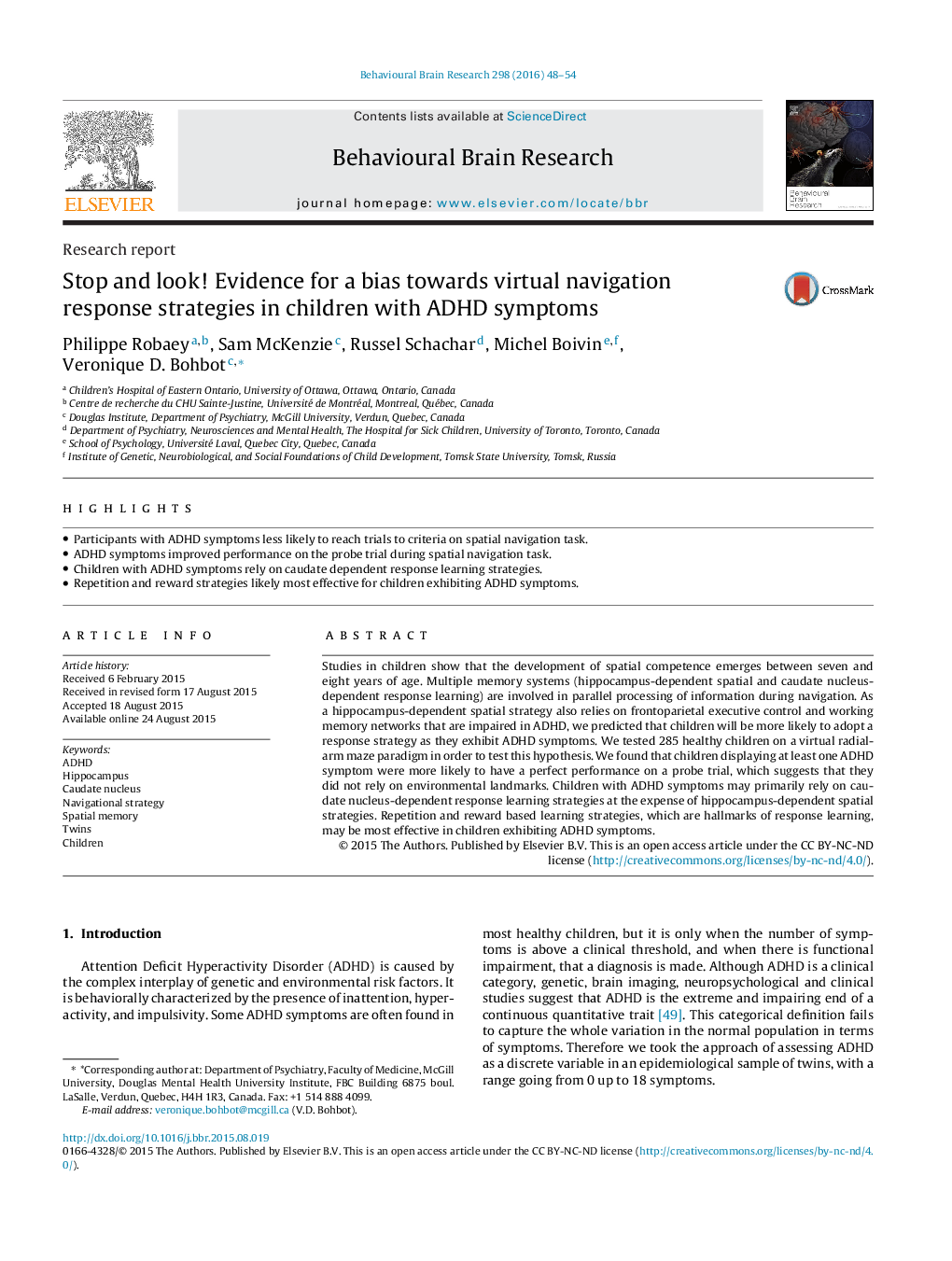| کد مقاله | کد نشریه | سال انتشار | مقاله انگلیسی | نسخه تمام متن |
|---|---|---|---|---|
| 6256345 | 1289915 | 2016 | 7 صفحه PDF | دانلود رایگان |

- Participants with ADHD symptoms less likely to reach trials to criteria on spatial navigation task.
- ADHD symptoms improved performance on the probe trial during spatial navigation task.
- Children with ADHD symptoms rely on caudate dependent response learning strategies.
- Repetition and reward strategies likely most effective for children exhibiting ADHD symptoms.
Studies in children show that the development of spatial competence emerges between seven and eight years of age. Multiple memory systems (hippocampus-dependent spatial and caudate nucleus-dependent response learning) are involved in parallel processing of information during navigation. As a hippocampus-dependent spatial strategy also relies on frontoparietal executive control and working memory networks that are impaired in ADHD, we predicted that children will be more likely to adopt a response strategy as they exhibit ADHD symptoms. We tested 285 healthy children on a virtual radial-arm maze paradigm in order to test this hypothesis. We found that children displaying at least one ADHD symptom were more likely to have a perfect performance on a probe trial, which suggests that they did not rely on environmental landmarks. Children with ADHD symptoms may primarily rely on caudate nucleus-dependent response learning strategies at the expense of hippocampus-dependent spatial strategies. Repetition and reward based learning strategies, which are hallmarks of response learning, may be most effective in children exhibiting ADHD symptoms.
Journal: Behavioural Brain Research - Volume 298, Part A, 1 February 2016, Pages 48-54